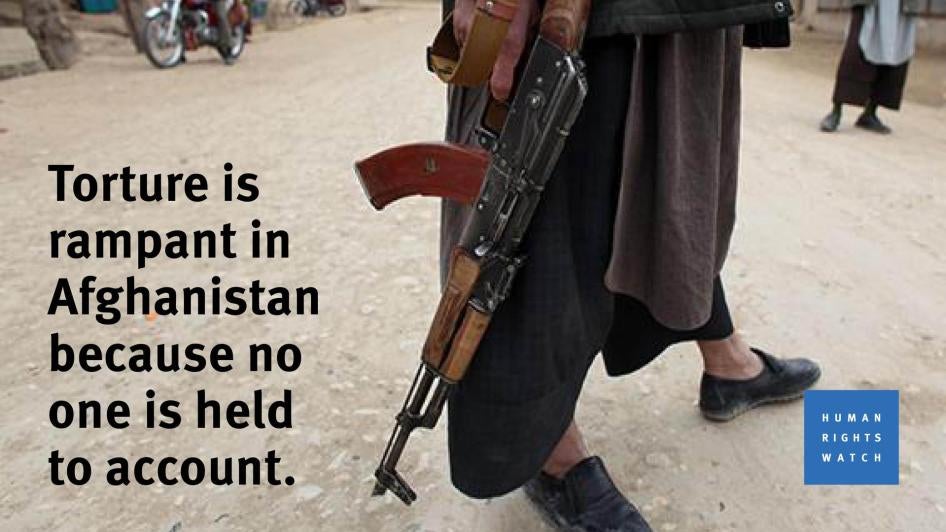It has been two years since Afghanistan’s president, Ashraf Ghani, vowed to end torture. Instead, it’s on the rise, with 39 percent of detainees subjected to beatings, electric shocks, or near suffocation by the Afghan police and intelligence agents, according to the United Nations Assistance Mission to Afghanistan (UNAMA).
Afghanistan’s official delegation to the UN Committee Against Torture is in Geneva this week trying to explain why.
The UNAMA report is a damning indictment of the government’s failure to take effective action against torture. A few of its findings stand out. First, in 2015-2016, UNAMA found the highest levels of torture of conflict-related detainees in police custody since it began monitoring detentions in 2010. Additionally, it found that 45 percent of children detained in relation to the conflict were tortured or mistreated. And that Kandahar’s police meted out the highest levels of abuse, torturing or mistreating a “staggering 91 percent of detainees,” by forcibly pumping water into their stomachs, crushing their testicles with clamps, suffocating them to the point of losing consciousness, and applying electric current to their genitals.
Afghanistan is a quarter century late with its report to the committee on what it is doing to end torture. When the committee met on April 25, its members asked the Afghan delegation why very few police are ever disciplined for abuse, and not a single senior officer in the Afghan police or National Directorate for Security intelligence agency has been prosecuted for torture or other mistreatment. Armed with statistics from the just-released UNAMA report, the committee’s experts questioned the delegation on the government’s failure to provide statistics on complaints of torture and torture investigations. They also wondered why – given the delegation’s claim that ending impunity was a priority – that the government’s written response neglected to mention the issue at all.
While the Committee Against Torture noted that the government had taken some positive steps, including agreeing to ratify the Optional Protocol to the Convention against Torture, which allows prison visits by independent monitors, the authorities still have a responsibility to investigate torture and prosecute those responsible.
The government is due to respond to the committee tomorrow, April 26. But there is no reason to believe that the delegation’s responses will provide a more hopeful picture of efforts to eliminate Afghanistan’s deeply entrenched torture and bring to justice those responsible.









